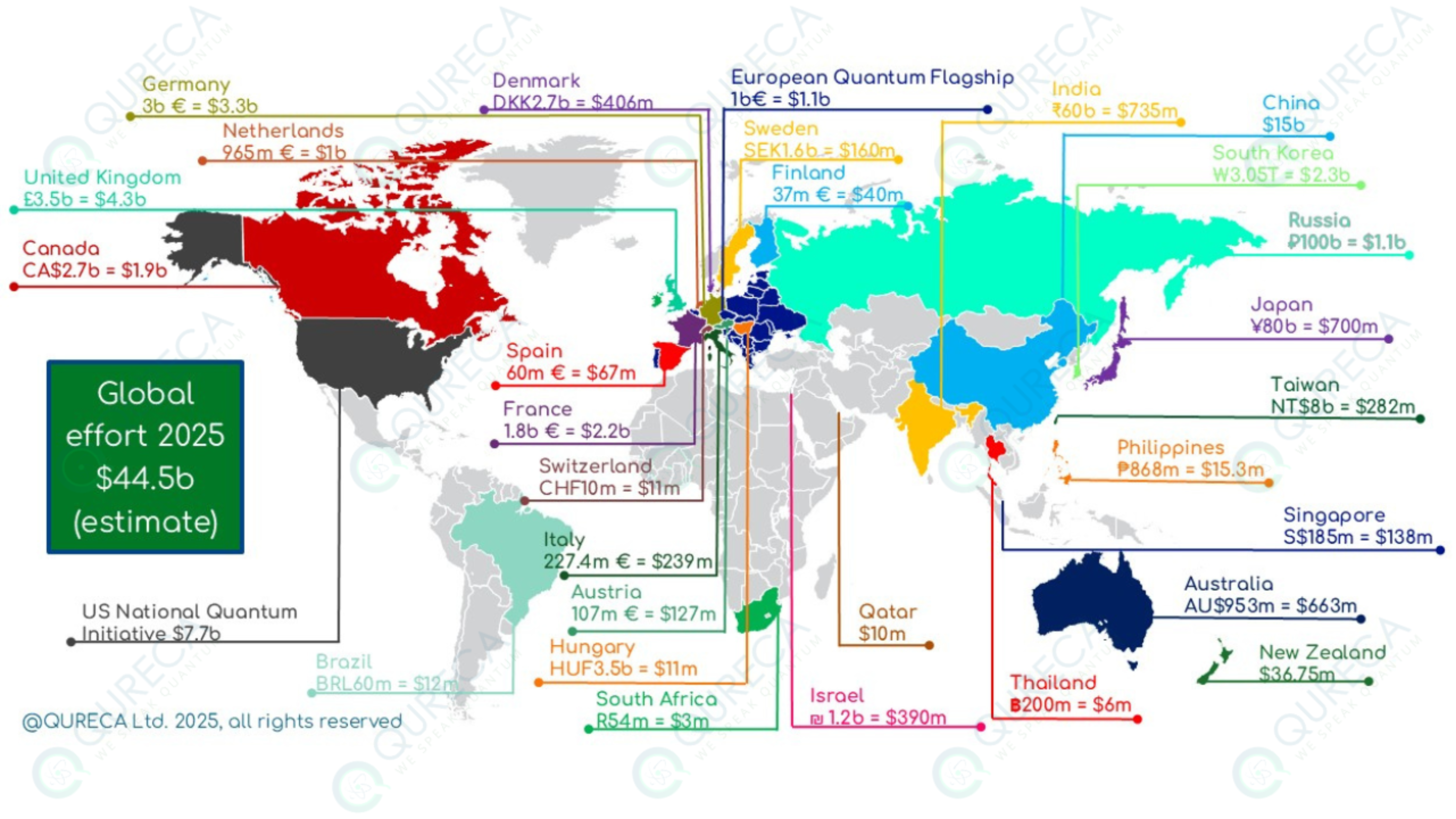United Kingdom
Over the years, the UK has shown increasing participation in quantum research and development. The UK began its first five-year phase in 2015, and after its success, announced the second five-year phase at the end of 2019.
The first phase consisted of over £385 million investment across several UK government agencies. During this phase, the UK created a vision for its National strategy for quantum technologies:
“To create a coherent government, industry and academic quantum technology community that gives the UK a world-leading position in the emerging multi-billion-pound new quantum technology markets, and to substantially enhance the value of some of the biggest UK-based industries” [67].
The five areas of focus were [68]:
- Enabling a strong foundation of capability in the UK,
- Stimulating applications and market opportunity in the UK,
- Growing a skilled UK workforce,
- Creating the right social and regulatory context,
- Maximising benefit to the UK through international engagement.
By that point, four hubs involving around 30 universities including associated companies and government organisations were established. The four research ‘Hubs’ consisted of research programmes, comprising academics with industry and government partners. They specialised on the known areas of quantum technologies: imaging, ultra-precise sensors, secure communications, and new concepts for quantum computing.
During the first phase, the UK heavily invested time and resources into quantum research to look into developing sensitive gravity detectors, quantum simulators, quantum computers and miniature atomic clocks. The establishment of a National Quantum Computing Centre was announced in 2018. Having recognised the benefits of quantum computing, this centre will be established to help the UK to evaluate, design, develop, and build a practical quantum computer [69].
Since then, investment in quantum technologies in the UK has certainly not taken a downturn, as at the end of 2019, the second phase of quantum research and development began. This phase builds on the first phase by refreshing the research Hubs to revise the agendas based on global, as well as national, developments in the field over the past five years. In June 2019, the UK government announced a further £153 million investment with an industry commitment of £205 million [69]. Furthermore, there is a new focus: industrialisation of quantum technologies.
To date, the UK has invested more than £1billion over the two phases of quantum technologies development [70].
The UK Government has published the National Quantum Strategy, which sets out a ten-year vision and plan for quantum in the UK, committing to spend £2.5 billion to research, innovation, skills and other activities in that period, as well as committing an additional £80 million over the next two years towards key activities [71].


1 Comment.
[…] with substantial investments aimed at fostering innovation and maintaining competitiveness. Countries like Australia, Canada, Denmark, Finland, France, Japan, South Africa, South Korea, Germany, […]